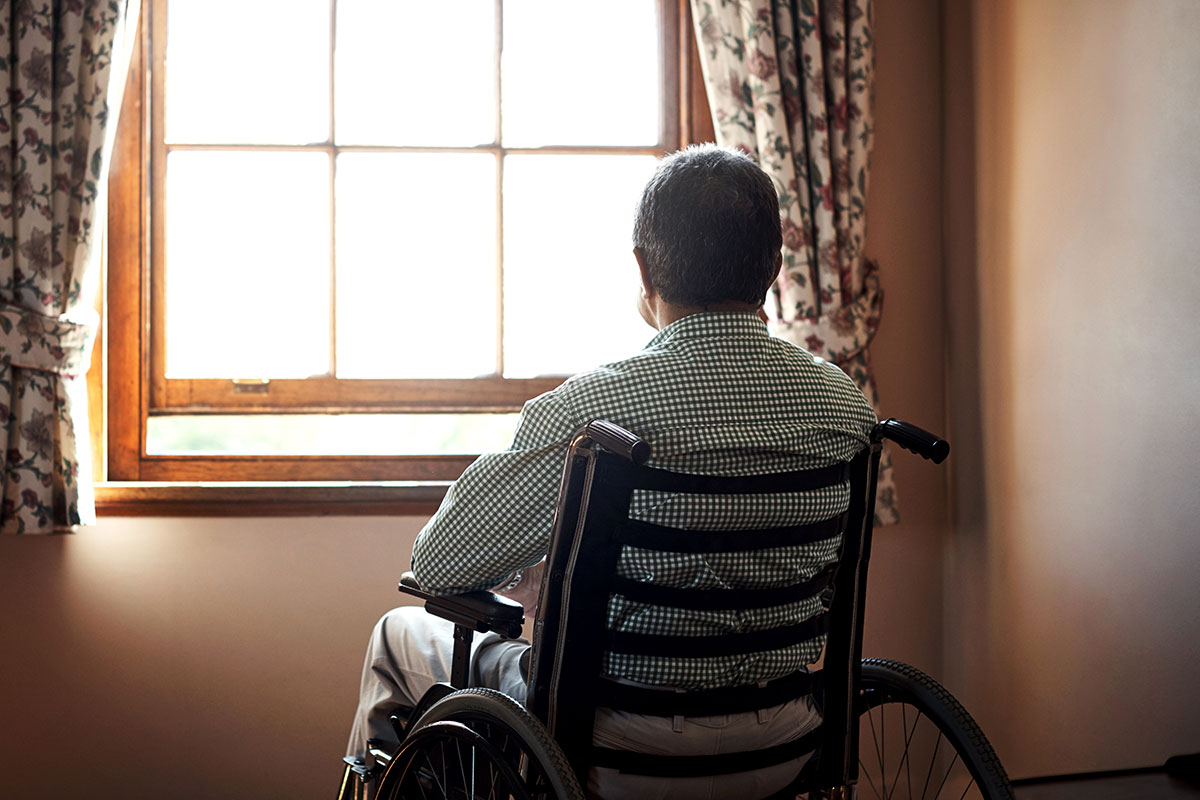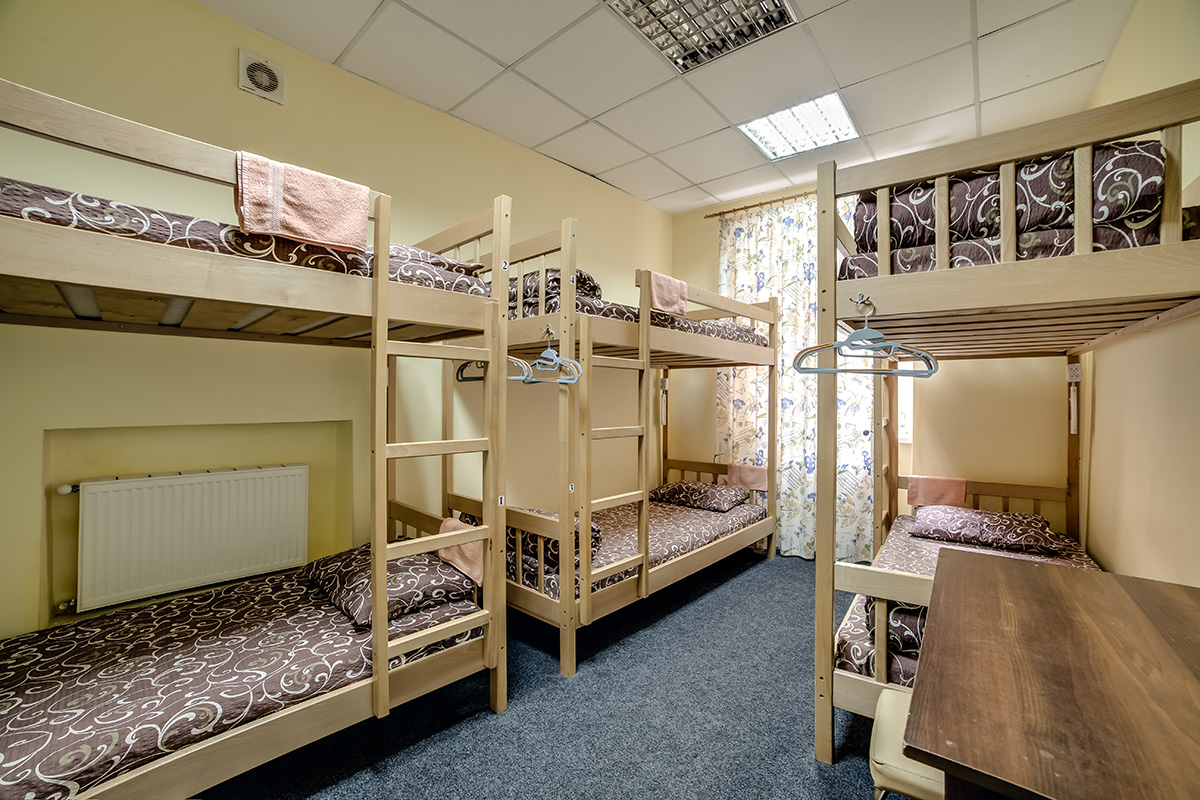You are viewing 1 of your 1 free articles
Councils must improve disability recording in temporary accommodation, researcher says
Councils’ recording of disabilities when placing people in temporary accommodation (TA) must improve, a researcher has said.
Signe Gosmann, a researcher into disability in TA, told Inside Housing there was currently “limited understanding” of and “limited attempts” to comprehend the scale of the issue.
Ms Gosmann works for Justlife, a national homelessness charity which provides support to and advocates for people living in TA.
The organisation was co-secretariat for the Temporary Accommodation All-Party Parliamentary Group (APPG).
The cross-party group of MPs recently published a damning report on the state of TA in England, which called for the sector to be regulated by including it in the Social Housing (Regulation) Bill.
Across the country, there are more than 95,000 households in B&Bs, hostels, shelters and properties rented out to councils.
The number of families housed in TA has risen by 56.8% since 2010, with nearly 120,000 children in this type of accommodation today.
The report revealed issues with health and safety, disrepair and overcrowding.
It also highlighted particular barriers faced by those with disabilities, revealing that many were placed in housing unsuitable for their needs and struggled with significant accessibility issues.
Some had developed a new disability as a result of living in poor TA.
Ms Gosmann told Inside Housing: “There is limited understanding of the scale of the problem – how many people we’re talking about – and that’s partly because it’s difficult, because disability is obviously so many things.
“But there seems to be very limited attempts at even estimating how many people we’re talking about.”
She said that, from the little research that has been done, the number of people with disabilities in TA appeared to be much higher than in the general population.
“[This] makes sense, because people with disabilities will be more vulnerable to homelessness in the first place.
“And, quite clearly, what we hear back is that once they’re placed in temporary accommodation, their disabilities can get worse because it’s a disabling environment to be in.
“And even though the system is such that it should be apparent to local authorities from the beginning that this was a person with disabilities, because that will generally be why they are given priority need in the first place, we find that people are often then still placed in accommodation that is unsuitable for their specific needs,” Ms Gosmann said.
She said this included people with mobility issues placed on a floor with no access to a shower room, for example.
“There are quite shocking stories out there,” Ms Gosmann added.
The APPG report included an example of someone who was placed in a hotel while awaiting more long-term accommodation and was unable to have their mobility device stored in their room.
This meant they were unable to move from their room.
The researchers for the report also spoke to autistic people, whose mental health was significantly affected by unplanned moves at short notice, inappropriate living conditions and a lack of support.
One child found the TA very challenging, as they had to leave their school, and the unfamiliarity and changes in their routine led them to suffer a “great deal of mental distress”.
Ms Gosmann acknowledged that there was not enough appropriate accommodation for local authorities to place people into.
“That is a massive issue. But we can’t even begin to ask for that change if we’re not able to point to what the problem is,” she said.
Ms Gosmann also said housing officers should receive training in how to ascertain disability needs.
“People are just not trained in these things, so they don’t know how to even begin to talk about disability, in my experience, because then they get really touchy about getting it wrong,” she said.
She said this placed the onus on the disabled person to “shout about their own needs, which many disabled people won’t feel like doing, or they won’t have the capacity to do”.
“It needs to be mainstreamed into the system so that it doesn’t fall to people who are already vulnerable to fight for themselves,” Ms Gosmann said.
David Renard, housing spokesperson for the Local Government Association (LGA), said: “Groups with protected characteristics have different experiences of homelessness and can be disproportionately affected by poor housing.
“We agree that there is insufficient research or analysis on the causes and solutions for these groups.
“We would like to see the government commission research on groups experiencing homelessness, with further analysis of disadvantage, to develop better-designed data-collection methodologies.
“The use of temporary accommodation as a whole is a huge concern to councils, with the number of households in temporary accommodation doubling in the past 10 years due to depleting social housing stock and an unaffordable private rented sector.
“We are calling on central government to deliver a cross-departmental homelessness prevention strategy, which looks at the effects of policies relating to welfare and planning on a council’s ability to prevent homelessness.”
Though it did not provide a statement, the Department for Levelling Up, Housing and Communities (DLUHC) referred to its requirement of local authorities to collect data on the support needs of homeless households, including health conditions and disabilities.
Sign up for our Council Focus newsletter
Already have an account? Click here to manage your newsletters












